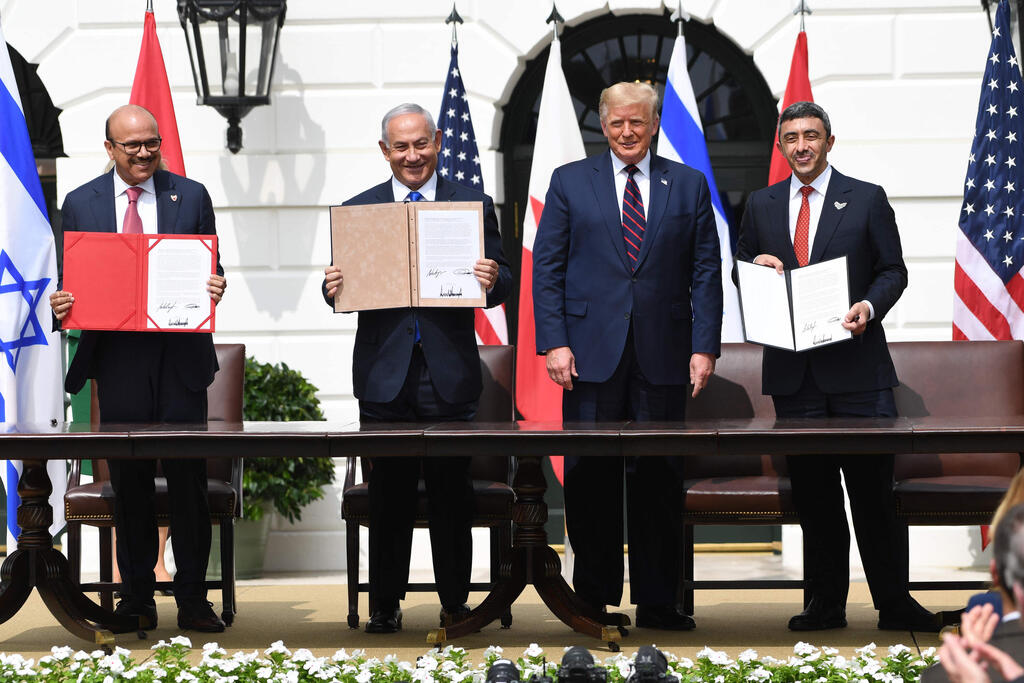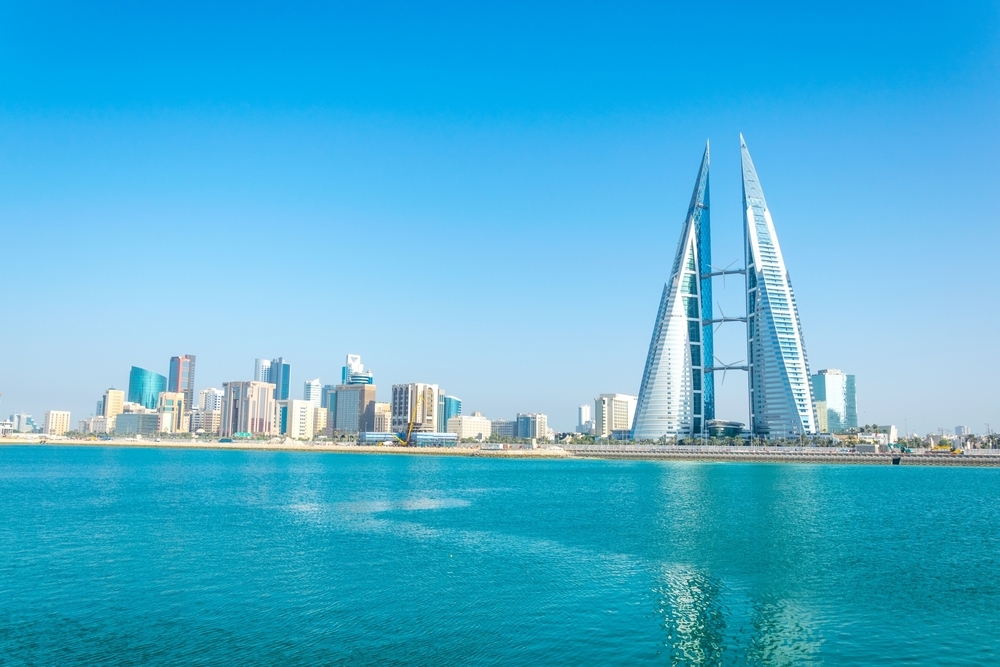Getting your Trinity Audio player ready...
While the peace treaties with Egypt and Jordan were mainly meant to ensure peace and security for Israel, and had no major economic benefit, the agreements signed Tuesday with the United Arab Emirates (UAE) and Bahrain could have an entirely different outcome.
Israel shares no borders with either nation and has never viewed them as a threat to its security.
4 View gallery


(L-R)Bahrain Foreign Minister Abdullatif al-Zayani, Israeli Prime Minister Benjamin Netanyahu, US President Donald Trump, and UAE Foreign Minister Abdullah bin Zayed Al-Nahyan during their signing ceremony at the White House
(Photo: AFP)
Nevertheless, the benefit to the two Gulf nations does not match the potential gains Israel could see.
It is now clear that the removal of the planned annexation of West Bank territory provided Bahrain and UAE the excuse to proceed towards a normalization of relations with Israel separate and apart from their commitments to the Palestinian cause.
Leaders in Bahrain and the UAE will surely flaunt the notion that it was thanks to them that Israel retracted its annexation plans as justification for their agreement to the accords.
Either way, Tuesday's agreements only serve to deepen the crack in the Arab world's resolve against normalization with Israel beginning with the peace agreements signed by Jordan and Egypt that had not spread to other nations, that is until Iran became a threat to their ruling elites.
Prime Minister Benjamin Netanyahu managed with considerable talent to market the Iranian threat to the Gulf states.
As that threat grew, the leaders of those nations flocked to the arms of Uncle America, and together with Netanyahu successfully utilized those fears in their benefit.
But despite the enormous importance in the signing of the accords, some in the Israeli public find it hard to express congratulations.
I personally think that these agreements are a historical achievement, and Netanyahu deserves praise for them, but it seems, and not just among Israeli Jews, think differently.
Israel's Arabs are now caught between the Palestinian rock and the Bahraini and Emirati hard-place.
On one hand, their hearts are with the Palestinian people, but on the other, they want to break out of Israel's borders and reach the Gulf states where they can fulfill the Middle East's version of the American Dream.
Since the planned agreement with the UAE was announced, there was barely any criticism of it by Israeli Arabs.
They mostly talked about the possible economic, academic and tourism benefits it might bring.
A known Arab Israeli businessman had already announced he will open a restaurant in Dubai and many more are planning to do the same.
Thanks to their language, education and religion, Israeli Arabs stand to be the main beneficiaries of the agreements.
They can not only do business in the Gulf, but also travel and study there while still able to feel at home.
They believe that they could serve as the bridge between the Palestinians and the Emirates.
The Gulf states are about to meet Israeli Arabs, who speak Hebrew and know the Jewish and Israeli mentality very well.
In due time, they stand to serve as excellent mediators for any further economic and tourism ties between the UAE and Israel.
As Israel strengthens its ties with the Gulf states, and the economic benefit grow, the level of animosity towards the Palestinians might diminish and the will to solve the Israeli-Palestinian conflict increase.
The Emirati leaders might be able to influence Israel's leadership more than any previous pressures put on it in the past by other Arab nations.
Israel, which mostly came to know its Arab neighbors through war and bloodshed, will now come to know the Emirati and Bahraini Arabs, free of any past conflicts.
Maybe the negative and hostile Israeli outlook towards a two-state solution with the Palestinians would soon change, fulfilling the old prophecy: "and they shall beat their swords into plowshares, and their spears into pruning hooks: nation shall not lift up sword against nation, neither shall they learn war any more."
First published: 22:44, 09.16.20




